
“Education systems have untapped potential to improve themselves.” – Mel Ainscow
Equity-focused educational change is probably the most discussed, debated and urgent problem we face in U.S. education today, particularly as poverty continues to grow. The term “closing the achievement gap” refers to decreasing the disparities in academic results between Black and White, Latino and White, and recent immigrant and White students. There are those who believe there is too much focus on accountability. There are those who believe the achievement gap is not created by schools. More and more studies confirm that children who are born disadvantaged to parents who have no education do poorly in testing programs compared to children who grow up in affluent families and begin life with many more advantages. Other studies have found startling inequities between schools serving poor students versus those serving the affluent. Does providing poor schools with additional resources substantially improve student success, or does one also have to simultaneously address the issues related to family economic well-being? If we want to achieve the levels of the highest achieving countries around the world, we need to embrace the vision that an excellent education is the right of every single child. Now is the time to pull together our best research, knowledge and skills, and improve the educational experiences of low-income and racial minority students. I was delighted to discover that Helen Janc Malone chose to focus on achieving equity in education in her new book, Leading Εκπαίδευση Αλλαγή: Παγκόσμια Ζητήματα, Challenges and Lessons on Whole System Reform.
Σήμερα στο Η Σφαιρική Αναζήτηση για Εκπαίδευση, I begin a new series on this topic with Helen and four of her global authors whose work is focused on educational change. First up is Mel Ainscow, professor of education and co-director of the Centre for Equity in Education at the University of Manchester in the UK. Mel’s work focuses on inclusion, teacher development and school improvement. Helen Janc Malone is Director of Institutional Advancement at the Institute for Educational Leadership in Washington DC.
Mel, what factors do you believe play a role in student learning in low income communities?
We know that children with low attainment tend to come from poorer families. These families often live in deprived urban areas, where there are high levels of poor housing, unemployment, ill-health and a host of other factors associated with poor educational outcomes.
We also know that neighborhood dynamics are important: the type of school the students attend, the mix of students, and their experiences in the school are also important. This suggests that school and non-school factors combine to lower the attainment of children and young people who are already disadvantaged by their backgrounds.
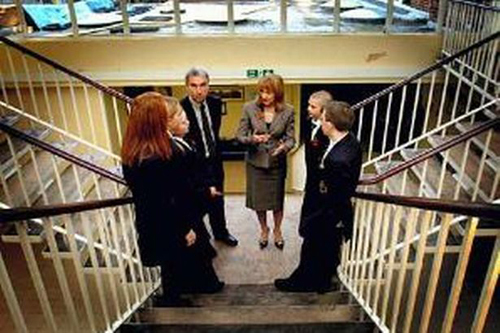
“Οι σχολικές συμπράξεις είναι τα πιο ισχυρά μέσα από την προώθηση βελτιώσεων, ιδιαίτερα σε δύσκολες συνθήκες.” – Mel Ainscow
Περιγράψτε συνοπτικά τους στόχους και τα επιτεύγματα του Greater Manchester Challenge.
Μεταξύ 2007 και 2011, Οδήγησα μια πρωτοβουλία που έθεσε ως στόχο να αντιμετωπίσει αυτό το σημαντικό πολιτική ατζέντα σε περισσότερες από 1,100 Αγγλικά σχολεία. Γνωστή ως η Μάντσεστερ Πρόκληση, το έργο είχε μια κυβέρνηση επένδυση της τάξης των £ 50.000.000 ($80 εκατομμύριο). Η απόφαση να επενδύσει ένα τόσο μεγάλο προϋπολογισμό αντανακλούσε μια ανησυχία σχετικά με τα εκπαιδευτικά πρότυπα, ιδίως μεταξύ των νέων από μειονεκτικά περιβάλλοντα. Μετά από τρία χρόνια, η επίδραση ήταν σημαντική σε σχέση με τις βελτιώσεις στις βαθμολογίες των δοκιμών και μάλιστα, ο τρόπος που το εκπαιδευτικό σύστημα διεξάγει τις δραστηριότητές της.
Τέσσερα σημαντικά μαθήματα προέκυψε ότι έχουν συνέπειες για την εξέλιξη αλλού. Μάθημα πρώτο είναι ότι εκπαιδευτικά συστήματα έχουν αναξιοποίητο δυναμικό για τη βελτίωση τους εαυτούς τους. Κατά συνέπεια, το σημείο εκκίνησης πρέπει να είναι με βάση τα συμφραζόμενα ανάλυση. Στο Μάντσεστερ, this convinced us that most of the expertise needed to take the system forward was there within our schools. Our aim therefore was to move knowledge around.
This conclusion led to the second lesson, ότι school partnerships are the most powerful means of fostering improvements, particularly in challenging circumstances. Focusing on 200 or so schools that we designated as the “keys to success,” each carried out its own analysis of need with the support of a team of expert advisers. They were then partnered with another school that was known to have relevant strengths.
It is significant that such partnerships often had a positive impact on the learning of students in both of the schools. This is an important finding in that it draws attention to a way of strengthening relatively low performing schools that can, συγχρόνως, help to foster wider improvements in the system. It also offers a convincing argument as to why a relatively strong school should support other schools. Με απλά λόγια, the evidence is that by helping others you help yourself.
The third lesson is that networking is a means of stimulating experimentation with new ways of working. Ωστόσο,, pathways have to be created that cross the social boundaries that prevent the movement of ideas within the system. Εχοντας αυτό κατά νου, we created “families of schools,” using a data system that grouped schools from different neighborhoods on the basis of the prior attainment of their students and their socio-economic home backgrounds.
Led by school principals, the families proved to be successful in strengthening collaborative processes, although the involvement of schools remained uneven and there were concerns that too often those that might most benefit chose not to do so.
The fourth lesson is that the leadership has to come from within schools. The good news is that we found that many successful principals were motivated to take on system leadership roles.
These four lessons provide the basis for developing self-improving school systems. Ωστόσο,, such developments do not happen by chance. They require national policies that help to create the conditions within which locally led action can be taken. They also require some form of coordination at the district level.

“Leadership has to come from within schools.” – Mel Ainscow
What can we learn from the Harlem Children’s Zone experiment and what is transferable to other high risk school zones?
Within the international research community, there is a division of opinion regarding how to improve outcomes for disadvantaged students. Αφ 'ενός, there are those who argue that what is required is a school-focused approach, with better implementation of the knowledge base from school effectiveness and improvement research. Αφ 'ετέρου, there are those who argue that such school-focused approaches can never address fundamental inequalities in societies that make it difficult for some young people to break with the restrictions imposed on them by their home circumstances.
An obvious possibility is to combine the two perspectives by adopting strategies that seek to link attempts to change the internal conditions of schools with efforts to improve local areas. This is a feature of the highly acclaimed Harlem Children’s Zone, a neighborhood-based system in New York. What is important about the approach is that it is doubly holistic. πρώτα, it links attempts to improve schools with efforts to tackle family and community issues that make it difficult for children to do well. Κατά δεύτερο λόγο, it sustains these efforts by providing “cradle-to-career” support as the child grows into an adult.
Ελένη, what can we learn from the Greater Manchester Challenge?
The old adage that “schools can and should do it alone” is a myth debunked by a burgeoning body of research that shows that partnerships, σχέσεις, collaboration and knowledge sharing matter in improving instruction, changing school cultures and positively impacting students’ ζωές. While schools by themselves cannot offer solutions to all the social ills that burden the lives of students, meaningful partnerships between and across schools can help to create conditions and opportunities that promote learning and positive development. We see this in the Harlem Children’s Zone in the U.S. context and we see that in the Greater Manchester Challenge in the UK.
What Ainscow’s illuminating work indicates is that there is much to be hopeful about when it comes to educational change. Collaboration among schools can be a powerful tool for innovation, improvement and individual and institutional learning. Building an educational culture that encourages within and across school sharing of promising practices, continuous professional development and staff empowerment leads to a motivated and inspired staff fully engaged in knowledge generation, development and sharing in direct service to improve the lives and academic outcomes of all students. Opening doors to school-community partnerships helps schools focus on their goals while ensuring that students have access to robust, high-quality services and programs that complement their school experience. Schools are a central institution in most communities and as such, have a critical role to play in addressing equity of learning opportunity. The Greater Manchester Challenge offers an example of how substantive partnerships can help schools improve and students achieve.
For more information on Ainscow’s and Malone’s work on equity, βλέπω Κορυφαίοι Εκπαιδευτική Αλλαγή: Παγκόσμια Ζητήματα, Προκλήσεις, και μαθήματα σχετικά με τη μεταρρύθμιση ολόκληρου Σύστημα (Παιδαγωγική Ακαδημία Τύπου, 2013) στο http://store.tcpress.com/0807754730.shtml

Ελένη Malone, Ο.Μ.. Rubin, Mel Ainscow
Photos courtesy of Mel Ainscow.
Για περισσότερα άρθρα στην εκπαίδευση είναι Δεξιά σειρά μου: Η Σφαιρική Αναζήτηση Για την Εκπαίδευση: Η εκπαίδευση είναι δικαίωμά μου – Ινδία, Η Σφαιρική Αναζήτηση Για την Εκπαίδευση: Η εκπαίδευση είναι δικαίωμά μου – Μεξικό, Η Σφαιρική Αναζήτηση Για την Εκπαίδευση: Η εκπαίδευση είναι δικαίωμά μου – Βραζιλία, Η Σφαιρική Αναζήτηση Για την Εκπαίδευση: Η εκπαίδευση είναι δικαίωμά μου – Νότια Αφρική
Στο παγκόσμιο Αναζήτηση για Εκπαίδευση, μαζί μου και παγκοσμίως γνωστή ηγέτες σκέψης συμπεριλαμβανομένου του Sir Michael Κομμωτήριο (Ηνωμένο Βασίλειο), Ο Δρ. Michael Block (ΗΠΑ), Ο Δρ. Leon Botstein (ΗΠΑ), Καθηγητής Clay Christensen (ΗΠΑ), Ο Δρ. Linda Ντάρλινγκ-Hammond (ΗΠΑ), Ο Δρ. Madhav Chavan (Ινδία), Ο καθηγητής Michael Fullan (Καναδάς), Ο καθηγητής Howard Gardner (ΗΠΑ), Ο καθηγητής Andy Hargreaves (ΗΠΑ), Ο καθηγητής Yvonne Hellman (Η Ολλανδία), Ο καθηγητής Kristin Helstad (Νορβηγία), Jean Hendrickson (ΗΠΑ), Καθηγητής Rose Hipkins (Νέα Ζηλανδία), Καθηγητής Cornelia Hoogland (Καναδάς), Αξιότιμο Jeff Johnson (Καναδάς), Η κ. Chantal Kaufmann (Βέλγιο), Ο Δρ. Eija Kauppinen (Φινλανδία), Υφυπουργός Tapio Kosunen (Φινλανδία), Ο καθηγητής Dominique Λαφοντέν (Βέλγιο), Ο καθηγητής Hugh Lauder (Ηνωμένο Βασίλειο), Καθηγητής Ben Levin (Καναδάς), Lord Ken Macdonald (Ηνωμένο Βασίλειο), Καθηγητής Barry McGaw (Αυστραλία), Shiv Nadar (Ινδία), Καθηγητής R. Natarajan (Ινδία), Ο Δρ. PAK NG (Σιγκαπούρη), Ο Δρ. Denise Πάπα (ΗΠΑ), Sridhar Rajagopalan (Ινδία), Ο Δρ. Diane Ravitch (ΗΠΑ), Richard Wilson Riley (ΗΠΑ), Sir Ken Robinson (Ηνωμένο Βασίλειο), Καθηγητής Pasi Sahlberg (Φινλανδία), Καθηγητής Manabu Sato (Ιαπωνία), Andreas Schleicher (PISA, ΟΟΣΑ), Ο Δρ. Anthony Seldon (Ηνωμένο Βασίλειο), Ο Δρ. David Shaffer (ΗΠΑ), Ο Δρ. Kirsten Μοναδική Are (Νορβηγία), Στήβεν Spahn (ΗΠΑ), Yves Theze (Lycee Francais Η.Π.Α.), Ο καθηγητής Charles Ungerleider (Καναδάς), Ο καθηγητής Tony Wagner (ΗΠΑ), Sir David Watson (Ηνωμένο Βασίλειο), Καθηγητής Dylan Γουίλιαμ (Ηνωμένο Βασίλειο), Ο Δρ. Mark Wormald (Ηνωμένο Βασίλειο), Ο καθηγητής Theo Wubbels (Η Ολλανδία), Ο καθηγητής Michael Young (Ηνωμένο Βασίλειο), και ο καθηγητής Minxuan Zhang (Κίνα) καθώς εξερευνούν τα μεγάλα ζητήματα της εκπαίδευσης εικόνα που όλα τα έθνη αντιμετωπίζουν σήμερα. Η Παγκόσμια αναζήτηση για την Εκπαίδευση της Κοινότητας Σελίδα
C. M. Rubin είναι ο συγγραφέας των δύο πολυδιαβασμένα online σειρά για την οποία έλαβε ένα 2011 Βραβείο Upton Sinclair, “Η Σφαιρική Αναζήτηση για Εκπαίδευση” και “Πώς θα μας Διαβάστε?” Είναι επίσης ο συγγραφέας του μπεστ σέλερ τρία βιβλία, Συμπεριλαμβανομένων Η Ρεάλ Αλίκη στη Χώρα των Θαυμάτων.
Ακολουθήστε C. M. Rubin στο Twitter: www.twitter.com/@cmrubinworld


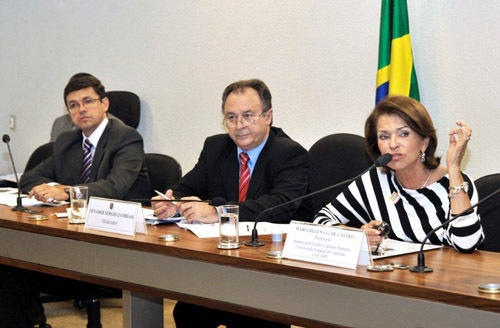
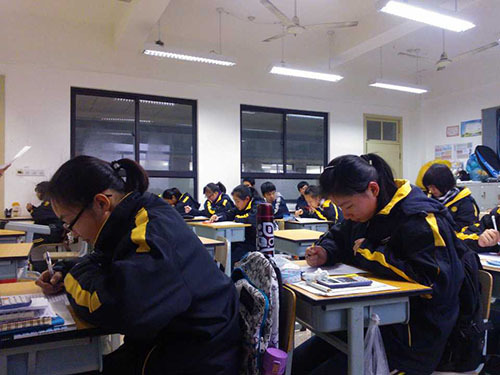
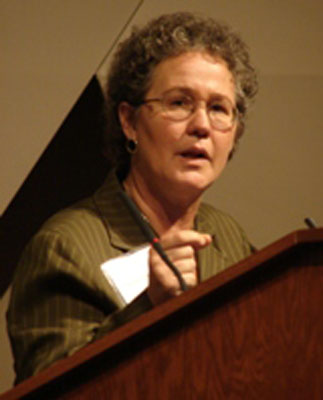
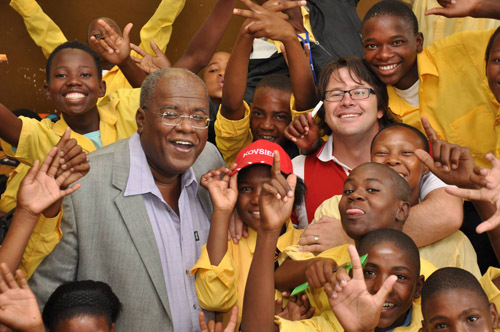
Πρόσφατα σχόλια